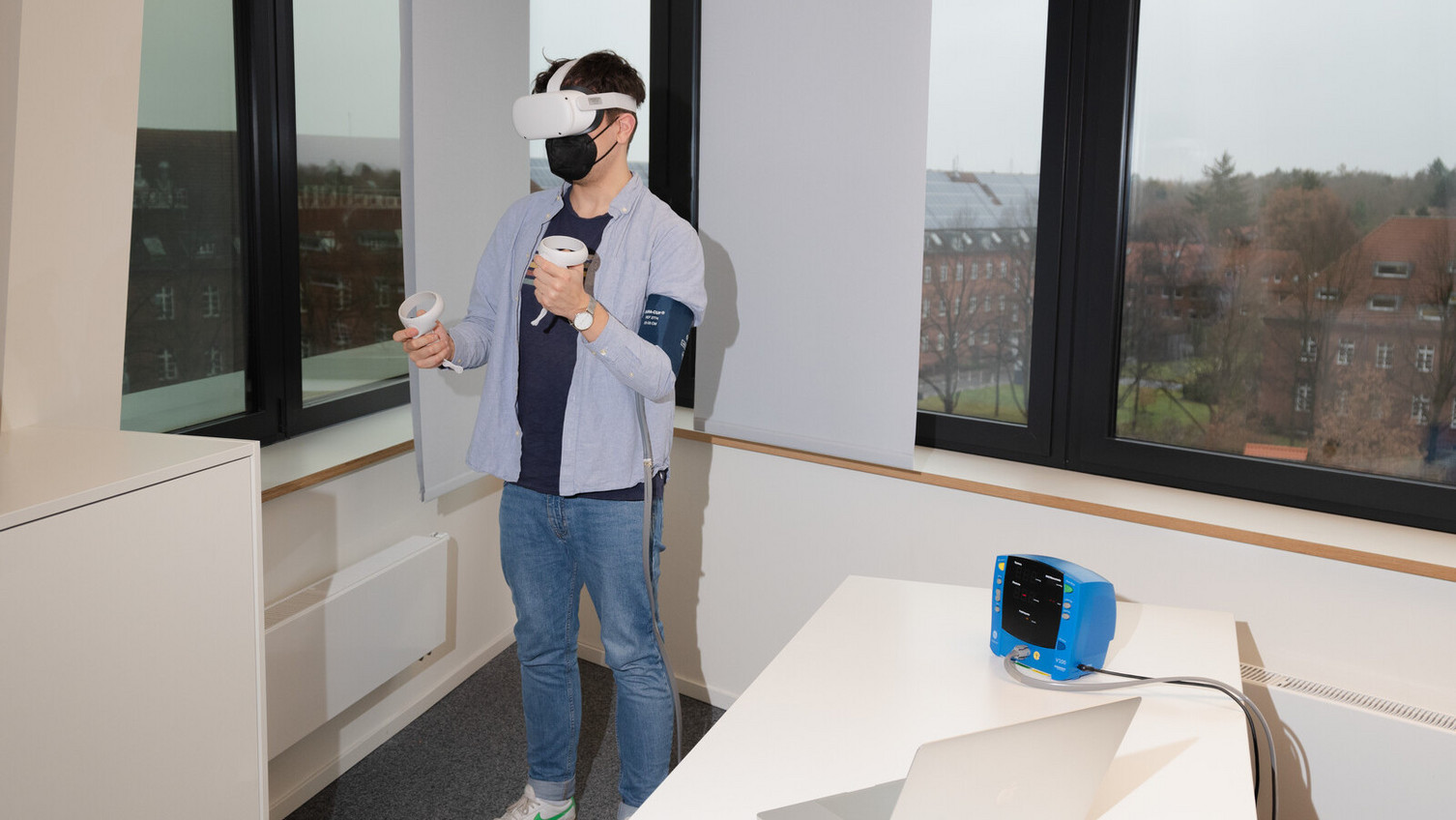Leuphana Laboratories: Cross-Faculty Research
2022-02-07 Eye-tracking, Emotion FaceReader or Mobile Solution Workshop: Leuphana Laboratories are open to all university members who wish to use their research to better understand human experience and behaviour. In line with the recently completed BMBF (Federal Ministry of Education and Research) project "Strengthening Online Research Competencies", the digital range of resources has also been expanded.
Lab manager Dr Meikel Soliman considers Leuphana Laboratories a "collaborative resource": "Researchers from all faculties can access various techniques and methods in the approximately 15 lab rooms in the central building." The Mobile Solution Workshop, for example, provides the means to simulate future scenarios, such as a world in which the 1.5-degree climate target has not been achieved. "Abstract issues can thus be made tangible and perceptible. Participants then develop and visualise alternative solution models among themselves in close dialogue," explains Prof. Dr. David Loschelder, Professor of Economic and Social Psychology. The Mobile Solution Workshop was developed as a decision-making method at the Faculty of Sustainability by Dr. Heike Zimmermann and Prof. Dr. Daniel Lang.
Researchers at the Faculty of Education led by Prof. Sebastian Wallot, for example, apply eye tracking in reading research, which can be used to analyse gaze behaviour. "Researchers can measure how well or poorly a person can read and which specific eye movements this is based on," explains David Loschelder. But the method also plays a role for researchers in marketing who seek to investigate consumer decisions. The Emotion FaceReader, on the other hand, is software that is able to record and analyse the activation of the 20 human facial muscles. The algorithm also reads spontaneous and unconscious emotional reactions and the results are interesting for advertising effectiveness research, for example. Other methodological features include the observation room, where interactions between people can be analysed. Virtual reality is also available, with which real situations in classrooms or (salary) negotiations can be simulated and become tangible.
In principle, the labs are also open during the Corona pandemic. Meikel Soliman and David Loschelder, together with colleagues from various disciplines and faculties, have additionally expanded the methodological range with virtual options. The project "Strengthening online research skills", funded by the Federal Ministry of Education and Research (BMBF), has now been completed. Anyone interested can find, for example, a checklist for online research or an overview of online data collection tools on the pages of the Leuphana Laboratories. Accompanying videos explain how to use the open source platforms. Until now, the content was rather confusing and its use was not intuitive. On the Leuphana Laboratories homepage, visitors can also access the Learning Corner by students for students. "Experience reports, best practice examples and common mistakes in online research are available," says Meikel Soliman.
The participating researchers at Leuphana Laboratories also seek to set an example for good scientific practice. "Background is the replication crisis in psychology and in research as a whole. Several study results from the 1980s, 1990s and 2000s cannot be reliably replicated," explains David Loschelder. The reason may be, for example, "trickery" in statistical evaluation. "That's why we not only publish our data online, but also our methods and hypotheses. This means that everyone can check our results themselves," explains the psychologist. This is how Leuphana Laboratories strives to actively participate in the "Open Science Movement". Explanations and videos about the "Open Science Movement" can be viewed on the Leuphana Laboratories website.

